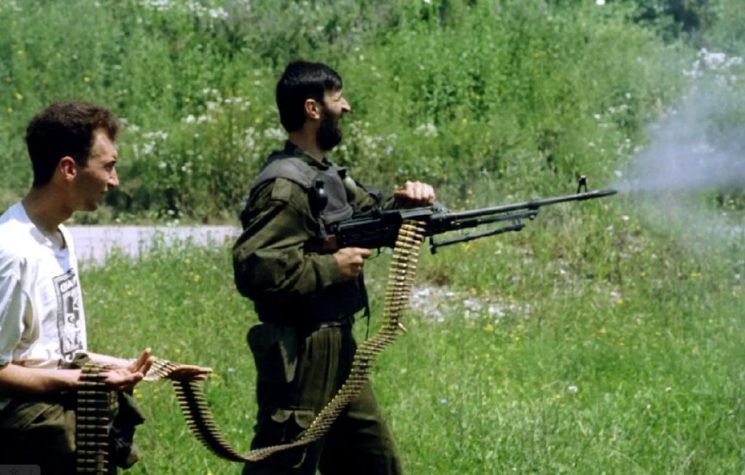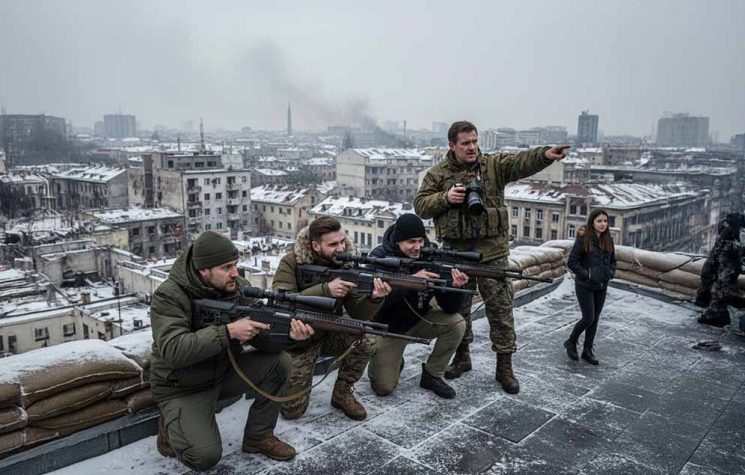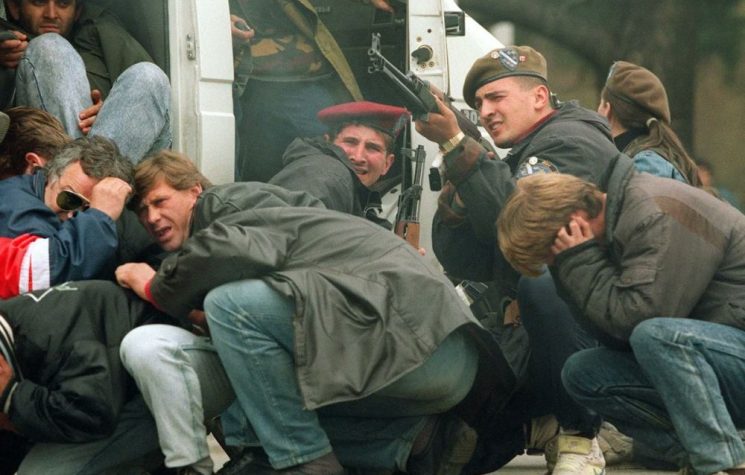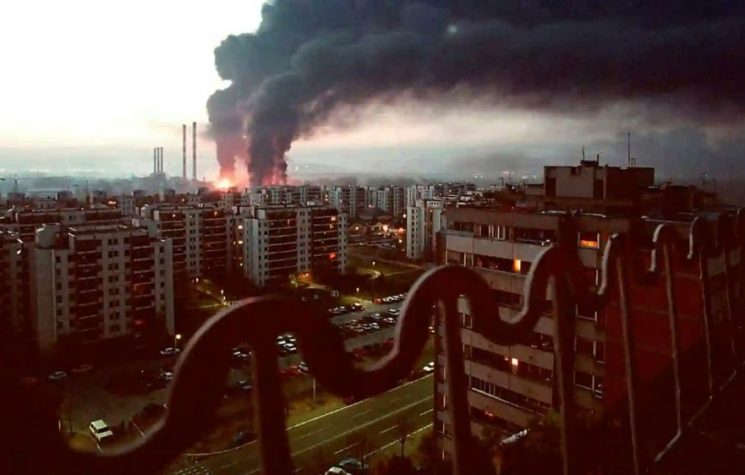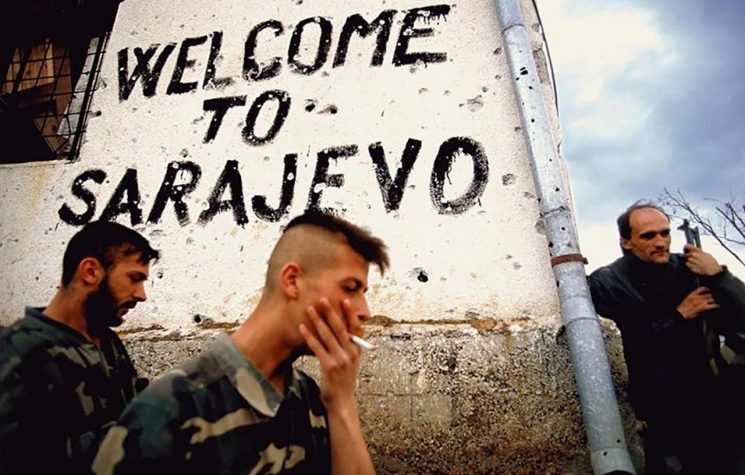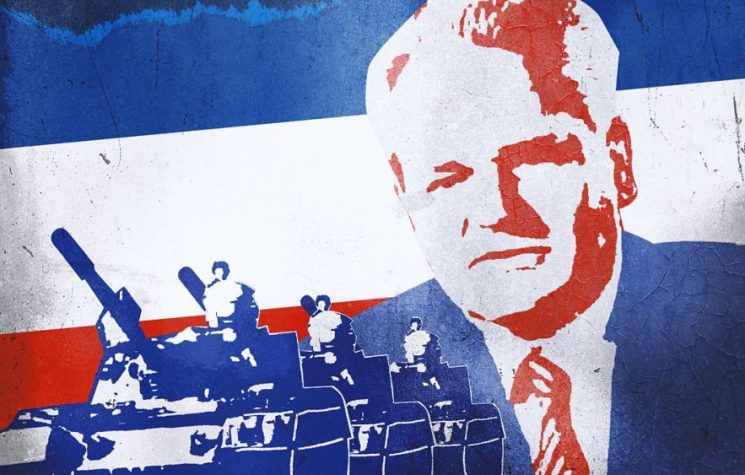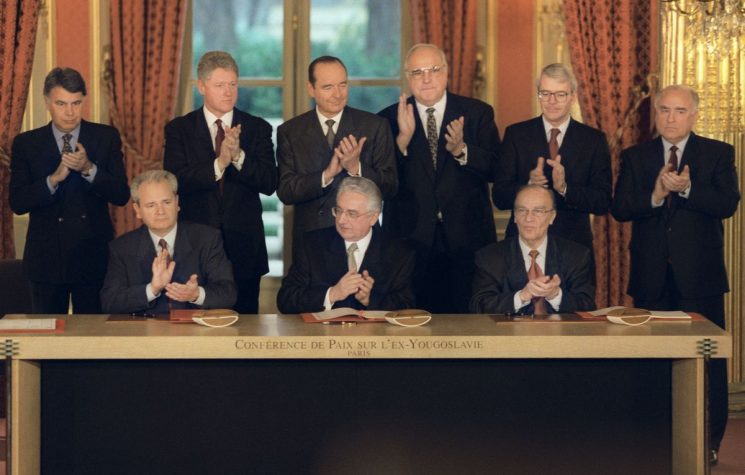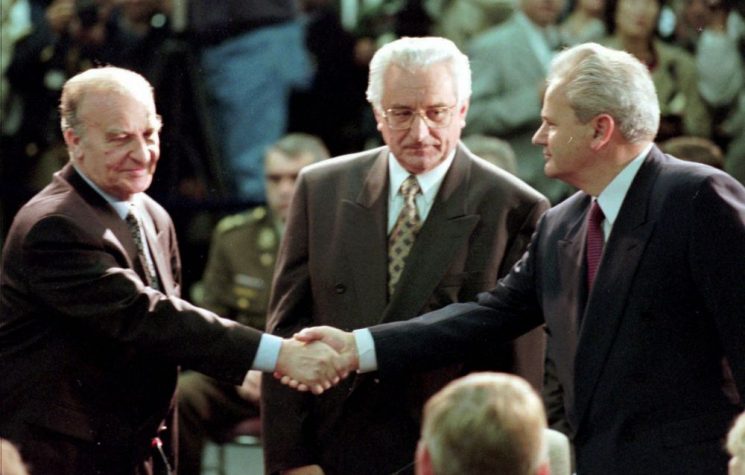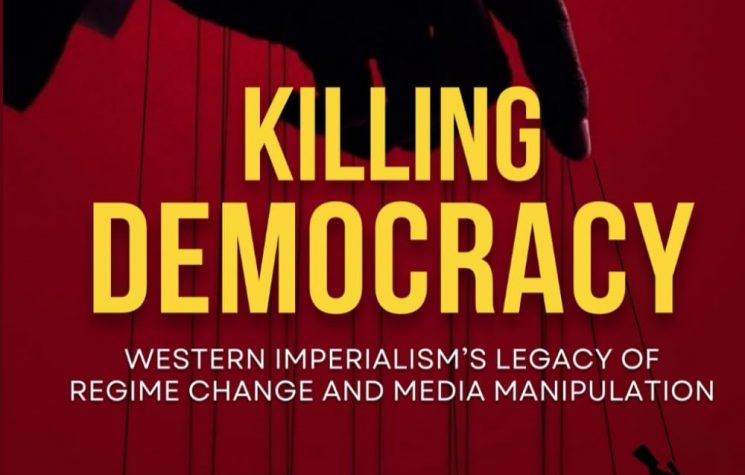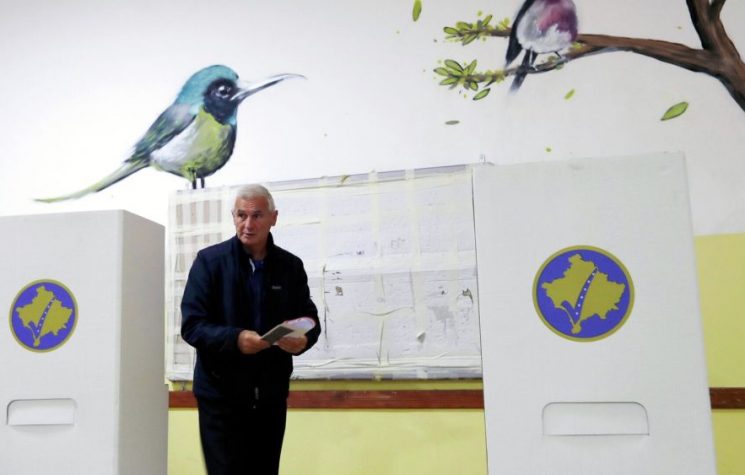As a result of a series of corrupt manoeuvres, Dodik has been outplayed and effectively driven from office, Stephen Karganovic writes.
Join us on Contact us: @worldanalyticspress_bot The political crisis that has unsettled the Republic of Srpska, the Serb entity in Bosnia and Herzegovina that was formed under the terms of the Dayton Peace Agreement in 1995, continues unabated. The direction it is taking bodes ill for the Serbs who live there and constitutes another diplomatic setback for Russia, which may lose a small but staunch ally in the Balkans. It appears that for the Republic of Srpska the latest political events mark the end of an era. That is certainly true for Milorad Dodik, who has served as the entity’s Prime Minister and President for the last twenty years. As a result of a series of corrupt manoeuvres, Dodik has been outplayed and effectively driven from office. As in the iconic television series, the game of thrones has now begun not only for his successor to be selected but, as importantly, to determine what policies and alliances the Serb entity will pursue in the future. For a proper understanding of the current situation, it should be recalled that the Dayton Agreement, signed thirty years ago, was the cornerstone not just of the peace that followed three years of bitter intra-communal warfare in Bosnia, but also a constitutional arrangement for a peaceful future within a loose Bosnian confederation. At least initially that suited all parties. However, the hope, at least on the Serbian side, that the terms of such a tolerable arrangement would be permanently respected was soon dashed. At the heart of the Dayton accords was the commitment by all parties, domestic and international, that Bosnia and Herzegovina, consisting of two autonomous ethnic entities, would be a decentralised state in which each of the three major groups, Serbs, Croats, and Muslims, would be largely free to manage its own affairs. A UN Security Council approved High Representative was empowered, in case of a deadlock, to interpret the peace accords in order to facilitate their implementation. Having renounced a military victory, that was the minimum that the Serbs could accept and the only condition upon which they would agree to remain politically within Bosnia instead of going their own way. Western powers involved in brokering the Dayton peace deal, as usual posing as the “international community,” ostensibly also manifested their assent to the Dayton principles of conflict resolution. Within a very short time however after the peace agreement was signed, it became clear that its Western signatories had no intention of abiding by its provisions. By underhanded methods, the powers of the High Representative became vastly expanded to a level that was incompatible with the sovereign status of Bosnia and Herzegovina under international law and in conflict with the provisions of the Dayton peace agreement. A succession of High Representatives targeted the Republic of Srpska for drastic divestment of its constitutional powers for the benefit of the Bosnian central government, which is under the tutelage of the self-appointed “international community” and acts as the local proxy for its interests. Against that background, in 2006 Milorad Dodik became Prime Minister with a clear mandate to slow down or preferably to reverse the gradual asphyxiation of the Republic of Srpska. He forged strong ties with Russia to counter the pressure to which the Serb entity was subjected in order to make it consent to a detrimental restructuring of Bosnia’s previously agreed political system. The collective West’s geopolitical game was to control of the entirety of Bosnia and Herzegovina, which was to be completely absorbed into their sphere of influence and against the wishes of the majority of its citizens would be incorporated into NATO. The details of how Dodik and the Republic of Srpska were set up in what is evidently the final chapter of their demise were expounded at some length in a previous article. As matters stand, Dodik and his SNSD, the party through which he has governed Srpska for two decades, are in capitulation mode. They have made a number of moves that indicate that their publicly avowed resolve to oppose the dismantlement of the Republic of Srpska is, to put it mildly, faltering. The first indication of that was Dodik’s decision not to contest the court ruling stripping him of his presidential mandate, leading many to question his previous protestations of defiance. By failing to use any of the instruments at his disposal to make good on his promise to vigorously oppose encroachments on Republic of Srpska’s autonomous status and to defend the integrity of the office to which he was democratically elected, he has helped establish precedents which will greatly complicate his country’s prospects for successful resistance and survival. That was followed a week ago by a bizarre vote in Republic of Srpska’s parliament, where Dodik’s party SNSD and its coalition partners are the majority, whereby previously adopted laws prohibiting the implementation of the High Representative’s illegal decrees on Republika Srpska’s territory were nullified. It was the enactment of those laws that precipitated the current crisis and Dodik’s subsequent prosecution and removal in the first place. The return to the status quo ante does nothing to block the realisation of one of the collective West’s major objectives in Bosnia: the political displacement of Milorad Dodik and thereby the removal of one of the principal obstacles to Bosnia’s total absorption within the geopolitical framework of the West. Whilst parliament’s passing of the controversial laws that triggered the political operation against Dodik and Srpska had consequences that were huge, the retraction of those laws now is utterly inconsequential because irreversible damage has already been done. If it was an attempt to undo anything, the retraction was therefore useless. But it nevertheless was a telling gesture of subservience that must raise reasonable doubts about the good faith of the major actors on the Serb side. Finally, the outgoing Dodik camp nominated its own presidential candidate for the snap elections ordered by the Bosnian electoral commission. He is Siniša Karan, a respected academic and apparently a person with a clean record. So far so good, although the nomination of a candidate to stand in elections they until recently denounced as illegal removes any practical doubt, defiant rhetoric notwithstanding, that Dodik and his administration in fact do accept the court verdict by which he was removed from office. The message that there would be no resistance to the usurpation of Republic of Srpska’s constitutional prerogatives was further driven home when, probably at Dodik’s direction, the parliament his party controls elected Ana Trišić Babić, a veteran political operative with long-standing ties to Western interests, as interim president. Mrs. Trišić Babić has a very interesting background, to say the least, which is very much at odds with her formal image as a Dodik loyalist. From 2001 until 2015 she held a variety of posts, including deputy foreign minister, in the institutions of Bosnia’s central government. Theoretically, that was to represent Srpska as a cadre of Dodik’s SNSD political party, to which she formally belongs. Her principal tasks there focused on issues of “European integration and cooperation,” presumably a code phrase that stands for something or other that seasoned analysts will easily decipher. In that capacity she took part in Bosnian central government’s negotiations regarding regional relations and cooperation with the NATO Alliance. In 1995 and 1996, to go back a bit, Mrs. Trišić Babić worked as a reporter for Radio Free Europe. In the period preceding her duties at the Bosnian Foreign Ministry, she was engaged by the Office of the High Representative in Sarajevo and USAID to coordinate some of their local projects. These titbits are informative enough, but she is also on record as explicitly advocating NATO membership for Bosnia and Herzegovina (video clip in Serbian) which – if it were to come to pass – would be a stunning policy reversal that would necessarily include the Republic of Srpska. Dodik’s vacant throne is now up for grabs. It is a safe bet that behind the scenes intense manoeuvring is taking place to install a compliant successor. Someone presumably with a profile not too different from Mrs. Ana Trišić Babić.![]()









